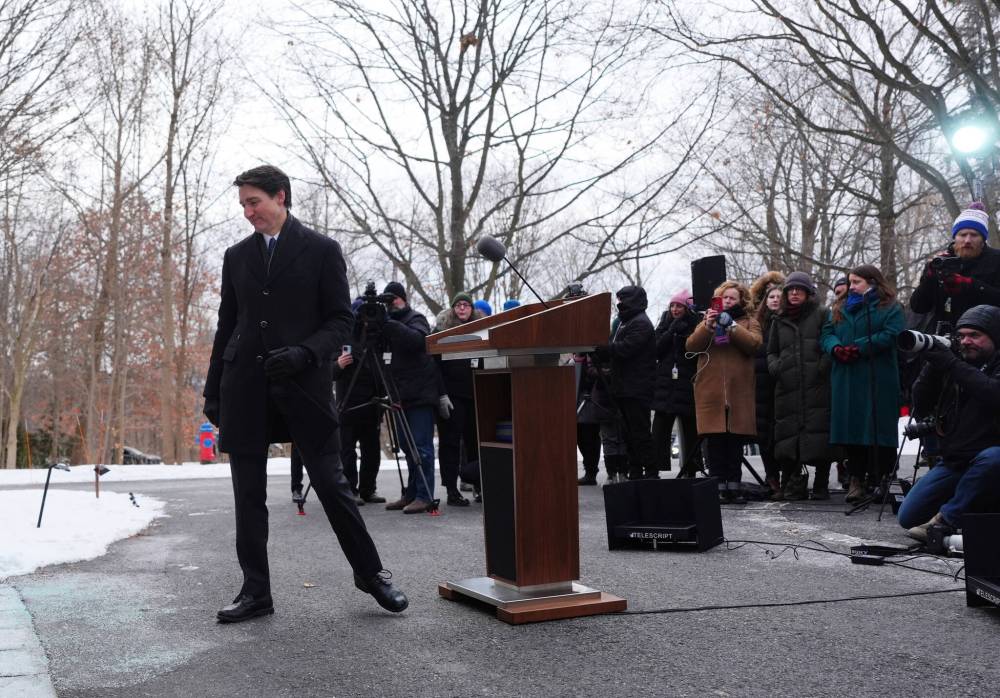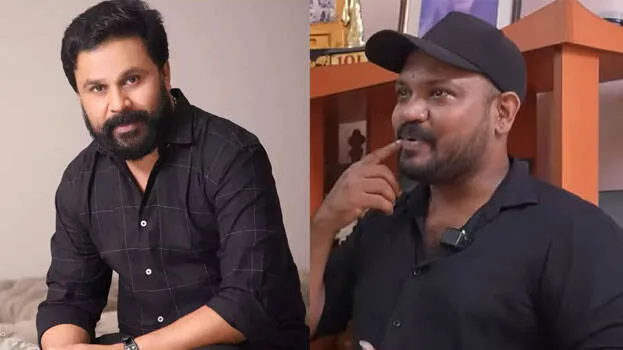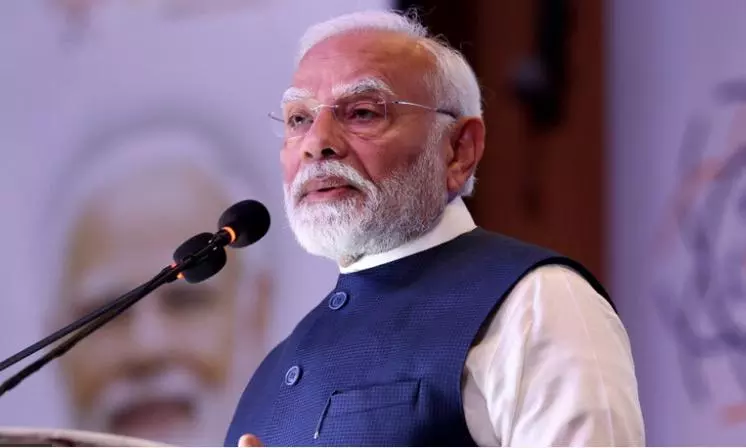
If making sense of politics today seems like Greek to you, luckily there’s a Greek who can help explain it. His name is Polybius. Read this article for free: Already have an account? To continue reading, please subscribe: * If making sense of politics today seems like Greek to you, luckily there’s a Greek who can help explain it.
His name is Polybius. Read unlimited articles for free today: Already have an account? Opinion If making sense of politics today seems like Greek to you, luckily there’s a Greek who can help explain it. His name is Polybius.

Unlike his better-known forebear, Plato (who plumbed for government ruled by a philosopher-king), Polybius was a believer in mixed forms of government. He gave rise to what we now call the “separation of powers” to avoid concentration of authority in one or a few sets of hands. Smart thinking.
The Canadian Press Prime Minister Justin Trudeau turns to leave a news conference after announcing his resignation as Liberal leader outside Rideau Cottage in Ottawa. Captivated by the dynamic Roman empire of his time (literally, since he was a hostage there for almost two decades), Polybius developed the theory of anacylosis, the cycle of political evolution. This cycle is characterized by three characteristics.
First, that regime decline is natural and inevitable; second, this is because of how successive leaders act; and third, regimes are determined by what precedes them. What’s this all got to do with our current, increasingly unlamented prime minister? It helps answer the question as to how and why Canada is where it is today and what’s coming next. And it answers whether Justin Trudeau’s political demise is a victim of either inevitable political circumstances or a victim of his own actions.
Polybius would say both. Today, we simply offer the all-encompassing dictum that “governments defeat themselves.” Conveniently, this pins the blame on some unspecified elixir of unpopular leadership, controversial policy decisions, and poor political performance.
It covers everything yet reveals nothing about what’s laying underneath. What’s underneath are the cultural tremors that inevitably give rise to earthquakes of political change. Understanding politics today means understanding that it is more about culture — what voters feel is important — than ideas to fix what’s important.
Culture is dominant because it is where and how people live. Its immediacy for people transcends any future, rational consideration of reasonable facts or futures. It shapes the language politicians use to be relatable and, more importantly, the priorities they pursue.
“Alternative facts,” anyone? Pierre Trudeau (remember him?) famously preached “reason over passion” when it came to politics. His son, not so much. In the current cycle of culture politics now pre-eminent, both are the dismissed men of history.
But for opposite reasons. The first because he sought to supress the passion that goes with culture in politics; the second because he sought to magnify the passion of culture in politics. Pierre Trudeau would be a historical relic in politics today.
Justin Trudeau is about to become a contemporary one. “Because it’s 2015!” is how the newly minted prime minister explained his historic decision to make his cabinet gender even. Once political zeitgeist, 10 years later the moment reeks of artificial symbolism given the resignations of ministers Chrystia Freeland, Jody Wilson-Raybould, and Jane Philpott.
Justin Trudeau’s self-description of being a feminist fails to compensate. From Indigenous reconciliation to diversity, equity and inclusion policies, Trudeau sought to surf the cultural waves of the past decade. Some of these were imported from America.
Think “Black Lives Matter” and “Me Too.” Canada required its reckoning and Justin Trudeau was to be its instrument. Or so he thought.
Today, he is out-of-date and out-of-time. His was the equivalent of taking a knife to a cultural gun fight. The battleground shifted beneath him.
Broke by “woke,” Trudeau failed — wittingly or not — to see the frontiers of this cultural war. Instead of cementing tangible legacies for his country that constitute progress, he embraced full-on progressivism — domestically and internationally — as the animating current to run through everything his government did, whether the country wanted it or not. It did until it didn’t.
His overreach underlined three essential truths in any political culture war. First, by overreaching in rhetoric, style, and substance, a political counter-current will be generated that will seek to unravel what came before it the first chance it gets. Building on what previous governments and leaders did is a quaint notion of yesteryear.
Through executive order fiat, Donald Trump is proving exactly that in the United States. DEI is DOA. Sent weekly from the heart of Turtle Island, an exploration of Indigenous voices, perspectives and experiences.
Second, every populist culture runs up against popular political limits in a democracy. Push too far, too fast or too soon, and the ballot box bounce favouring you in the last election will smack you in the face at the next. Third, culture wars require armies of privates to follow, not just generals to direct.
Magnified by social media, these followers must be continuously fed a diet of facts, truths, and victories — real or imagined — to remain engaged. Trump’s pardoning of some 1,500 convicted Jan. 6 rioters who stormed the U.
S. Capitol Building in 2021 to stop Joe Biden’s presidential certification is the most egregious example. We will soon see the Canadian version of this play out once Justin Trudeau leaves the stage.
The cycle will be complete. Until, as Polybius points out, another cycle begins. Advertisement Advertisement.











